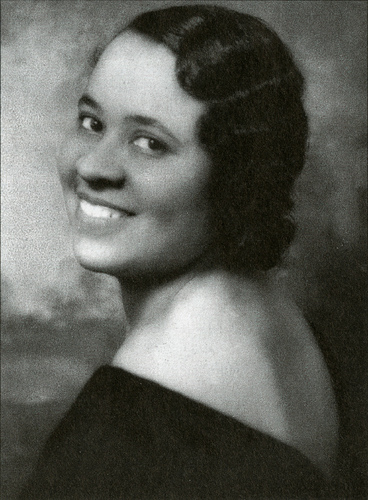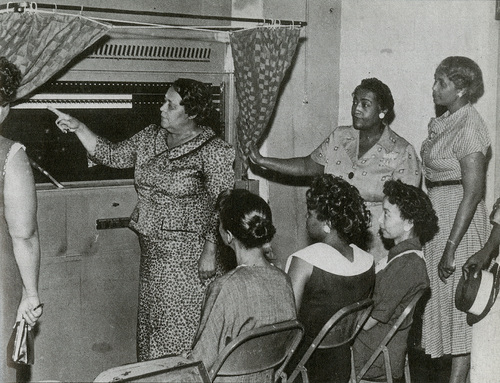Ruby Blackburn
Ruby Blackburn owned and operated “Ruby’s Beauty Shop” in Washington Park on current-day Joseph E. Boone Boulevard, which opened in 1932, and worked towards Black civic advancement in her community. She became known as one of the most influential Black community organizers in Atlanta, founding organizations including:
- T.I.C. (To Improve Conditions) Club (Depression-era)
The T.I.C. Club was an all-female organization that tackled many issues relating to the community. The group relocated garbage dumps that plagued Black neighborhoods, established nurseries to take care of working mothers' children, worked towards getting Blacks employed during the Great Depression, and even established two public schools for Black children.
- Atlanta Cultural League and Training Center for Domestic Workers (World War II)
The goal of this organization was to work towards further enfranchisement of the Atlanta Black community. The main issues they battled against included the spheres of employment and civic duties.
- Georgia League of Negro Women Voters (1951)
Founded after Blackburn was rejected from the all-white League of Women Voters, the Georgia League of Negro Women Voters’ primary goal was to register every Black woman of voting age living in Georgia. Along with this task, the group provided classes that informed voters about candidates and their platforms. Blackburn also personally provided voter machine demonstrations and swore in poll workers.
Blackburn was also active in the Atlanta chapter of the National Association for the Advancement of Colored People (NAACP). One of her most important contributions to the NAACP were her campaigns to increase membership. Her efforts were highly successful; membership and attendance of the Atlanta chapter grew significantly by 1943, especially with the Black women demographic.


